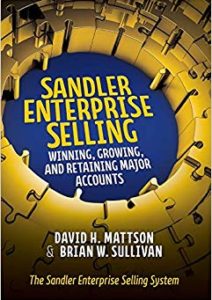As roadmaps for best practices, sales playbooks matter. But now, as we emerge from the maelstrom of the pandemic, they matter more than ever. To start this playbook conversation, let’s build our understanding through one of our favorite methods – the sports analogy.
I wrote an article a while back comparing sales playbooks to soccer corner kicks. In a sport with very few settled situations, they present unique opportunities for strategy. In the English Premier League, though, only 17% of corner kicks result in shots on goal and only 2% produce goals scored. These statistics notwithstanding, teams spend significant time practicing corner kicks. Of course, this might cause many to question why so much time is spent on situations that result in scores only 2% of the time. But consider this. In the English Premier League, 60% of the matches are decided by one goal or less. As such, even with the low likelihood of corner kick goals, the importance of strategy to impact these settled situations becomes much clearer.
Makes sense, right? But what about selling and the complexities of our post-pandemic world? Given all the competing priorities, how valuable is time spent on strategizing your sales plays, especially now, when significant wins are so precious? And how important is anticipating and defending against your competition’s changed and changing strategies? I remember the words boldly printed on the covers of our monthly planners in my early selling days at Xerox – “Plan your work – work your plan”. How can we make that well-known phrase more than just a tag line? How can we bring it to life? Sales playbooks can make the difference. Successfully structured and utilized, they increase your chances of success. According to Aberdeen Research, sales organizations that implement playbooks have shorter sales cycles, more reps making quota and higher revenue growth rates.
But in our post-pandemic world, how can playbooks help you get those positive impacts in your numbers to catapult you into the brighter future we’re all planning on? While there are several categories of sales playbooks, for the practical purposes of this article, we’ll focus on sales process playbooks. Effectively crafted and executed, they are the most impactful. And sales process excellence is absolutely critical in this post-COVID time. I know what you’re thinking. “We have a sales process”. Of course. Most organizations do. Or they say they do. But most sales processes consist simply of exit checklists or qualification guidelines. Helpful? Perhaps. But they fall far short in execution.
What’s needed now is a real process and a real playbook, clearly defined by renowned sales playbook expert, Daniel Zamudio, CEO of Playboox. “A sales process playbook captures and codifies what your top performers say, ask, do and use at each stage of the sales process to guide all salespeople on how to most effectively initiate, assess, advance, close and grow sales opportunities and enable sales managers to systematically coach their reps to do the same”. Close and grow, through the power of playbooks. Daniel, whose lifetime career in sales shines through in his words, knows that well.
So, playbooks matter. But why especially now? Think about it. What’s the one constant for all buyers and buying organizations in the post-COVID world? That’s right, change. According to Daniel, “Buyer enablement and its complexities must be recognized and planned for in sales playbooks. We tend to focus on virtual selling but we must also account for virtual buying. Many buyers have developed strong preferences for buying remotely and will follow it as the new norm”. A game-changing point by Daniel and an example of a significant buying change that we must plan for in our selling strategies now and into the future.
The pandemic has created fundamental buying changes that are here to stay. You may not like them, but you can’t wish them away. Ignore them at your own peril. Or embrace them, reflect them in your actions and build real competitive advantage. Not for the sake of process but for the sake of winning.











Comments